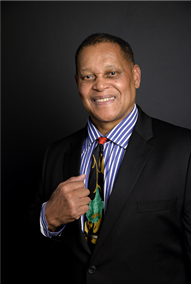FMF media release
25 May 2018
Expropriation without compensation (EWC) is a betrayal of the struggle
“Expropriation without compensation (EWC) is a betrayal of the struggle and the most ominious reversal on the road to true liberation for black South Africans since apartheid. It will deny the rights for which black citizens fought and died. Ironically, it will be the children of those perpetrating EWC today who will be affected for generations. Yet again, black people are and will continue to be the main victims,” said FMF director Temba Nolutshungu at a media briefing on 23 May. “Changing the Constitution is not easily undone. It does not matter what Ramaphosa says today. It will be future politicians who will decide how to implement this policy.”
Nolutshungu continued, “Protection of property is sacrosanct and at the core of individual liberty and freedom. EWC will return South Africa into the jaws of apartheid. Property deprivation has not ended post-apartheid; it continues on a massive scale for public purposes and affects almost exclusively black citizens who do not have secure freehold title”.
Fellow speaker, Terence Corrigan, policy fellow at the Institute of Race Relations (IRR), spoke on the ideological and policy roots of EWC which he said were part of a sustained drive to weaken private property rights and expand government interference extending far beyond the agricultural sector.
“This is not about land, but about property rights. Developments over 10 years have seen the expansion of the footprint and intervention of the state in the economy. Land is being used to set a precedent for other sectors and goes deep into the heart of the ANC’s revolutionary history: the National Democratic Revolution – an historic hostility to capitalism, and desire for party dominance and demographic representivity.”
Nolutshungu, detained twice in the apartheid era under the General Law Amendment Act and the Terrorism Act, said, “Given our history, I cannot comprehend how we can contemplate this (EWC)”. The Nolutshungu family directly suffered when the home of his grandfather Temba Tainton Nolutshungu, built with his own hands and resources, was confiscated. The elder Nolutshungu and siblings were displaced and dispersed.

Temba Tainton Nolutshungu
He said that the debate around this issue has been highly racialised. “This is not about land but the politics of retribution, envy and desperation for votes in 2019.”
Corrigan agreed that EWC is a response to electoral threats and land unites factions. It also deflects attention from economic policy failings. He said that “custodianship” is a critical concept in the debate. It allows the state to take over the rights of ownership without legally doing so (therefore, not technically expropriation). This is the case in respect of mineral rights, endorsed by the Constitutional Court – Agri SA vs Minister for Minerals and Energy, 2013.
Custodianship has repeatedly arisen in policy discussions and could be the vehicle to effectively place all land under state control without necessarily requiring a constitutional change.
Corrigan said that lack of credible and accurate information on land ownership has crippled the debate while misrepresenting the facts including land ownership statistics. Also the focus on EWC has shifted attention away from the real causes of land reform failure which are: lack of political will; deficient project design; limited and inadequate budgets; administrative incapacity; poor interdepartmental cooperation; corruption and elite capture.
Nolutshungu reminded the audience that he and executive director Leon Louw played a significant part in a last minute addition to the Constitution when in 1996 they persuaded the Constitutional committee under the chairmanship of Cyril Ramaphosa to insert a property rights clause into the Constitution. Blacks had fought and died to get back property and property rights stolen from them. “Does Ramaphosa want a country in which blacks have no property rights?” he asked.
Restitution is essential, but it is not necessary to undermine property rights to achieve this.
Ends
VIDEO of media briefing: https://www.youtube.com/watch?v=zjQBpZuY_zY&t=5s
Note to the editor
The Constitution
S 25 (1): No one may be deprived of property except in terms of general application and no law may permit arbitary deprivation of property.
Speaker photos

